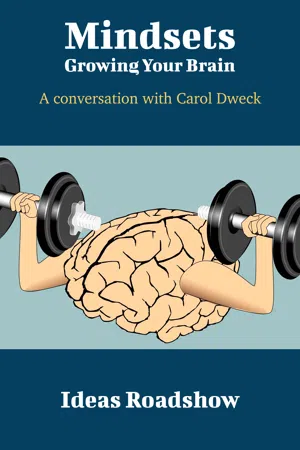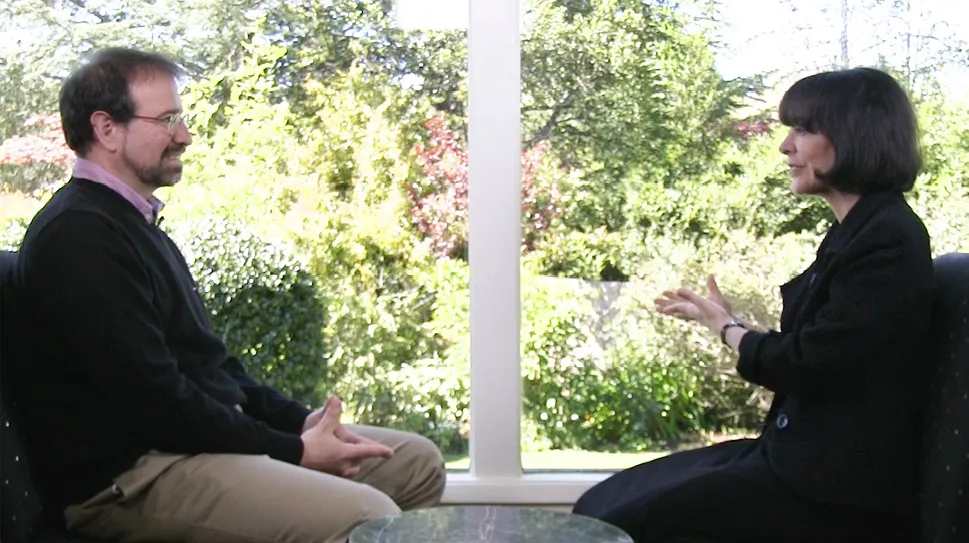
- English
- ePUB (mobile friendly)
- Available on iOS & Android
Mindsets: Growing Your Brain - A Conversation with Carol Dweck
About this book
This book is based on an in-depth filmed conversation between Howard Burton and renowned psychologist Carol Dweck, Stanford University. This conversation provides behind-the-scenes, detailed insights into the development of Carol's important work on growth mindsets and fixed mindsets: how different ways of thinking influence learning ability and success.This carefully-edited book includes an introduction, Justified Applause, and questions for discussion at the end of each chapter: I. Fixed Beginnings - Mrs. Wilson's legacyII. Confronted by Young Wisdom - Encountering growth-minded 10-year-oldsIII. The Genius Defense - All pain, no gainIV. Good and Bad Praise - Embracing the processV. Getting Personal - Popular writing, John McEnroe, and enforcing standardsVI. Brainsets - Neuroplasticity and intelligenceVII. Gender Differences - Male and female mindsetsVIII. Getting the Message Out - Inspiration and misinterpretationIX. Practical Tips - Beneficial struggling and the power of "yet"X. Diversity and Universality - French, Americans and common groundXI. New Horizons - From school bullying to Middle East politicsXII. The Big Picture - Growing the human conditionAbout Ideas Roadshow Conversations Series: This book is part of an expanding series of 100+ Ideas Roadshow conversations, each one presenting a wealth of candid insights from a leading expert in a focused yet informal setting to give non-specialists a uniquely accessible window into frontline research and scholarship that wouldn't otherwise be encountered through standard lectures and textbooks. For other books in this series visit our website: https://ideasroadshow.com/.
Frequently asked questions
- Essential is ideal for learners and professionals who enjoy exploring a wide range of subjects. Access the Essential Library with 800,000+ trusted titles and best-sellers across business, personal growth, and the humanities. Includes unlimited reading time and Standard Read Aloud voice.
- Complete: Perfect for advanced learners and researchers needing full, unrestricted access. Unlock 1.4M+ books across hundreds of subjects, including academic and specialized titles. The Complete Plan also includes advanced features like Premium Read Aloud and Research Assistant.
Please note we cannot support devices running on iOS 13 and Android 7 or earlier. Learn more about using the app.
Information
The Conversation

I. Fixed Beginnings
Mrs. Wilson’s legacy
Questions for Discussion:
- Would you say that you generally have a growth mindset or a fixed mindset? Has your mindset changed in any way as you grew older?
- Do you know what your IQ is? Has this chapter made you more, or less, inclined to take an IQ test?
II. Confronted by Young Wisdom
Encountering growth-minded 10-year-olds
Table of contents
- A Note on the Text
- Introduction
- The Conversation
- Continuing the Conversation